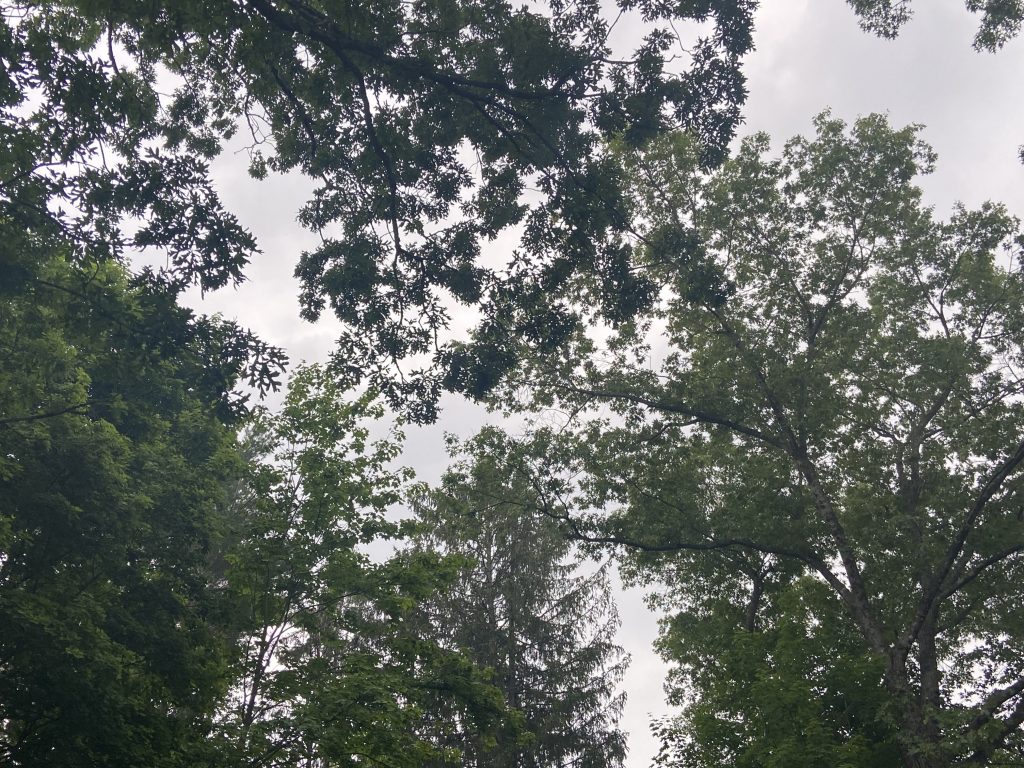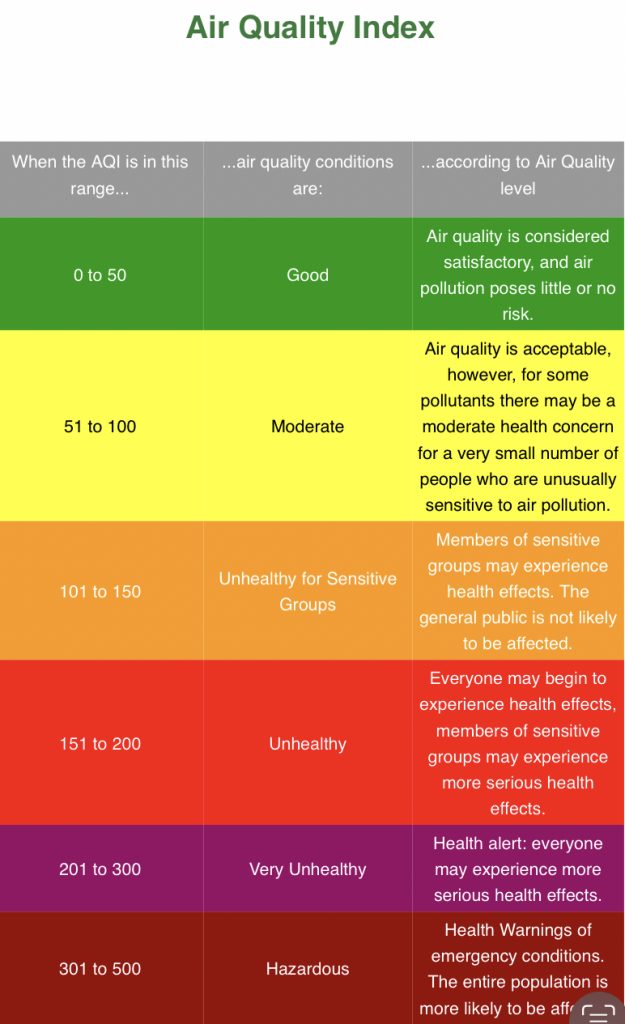Smoke From Wildfires Still Affecting Air Quality

Just looking out your window these days you can tell that the air quality has recently been affected by the wildfires in Canada… Smoke from the Canadian wildfires is creating unhealthy air for much of New York State. The wildfires have burned over 9.3-million acres of land across Canada. The state Department of Environmental Conservation Commissioner Basil Seggos said during a press conference on Tuesday: “The sky is hazy, visibility is terrible, and you can smell the smoke in the air.” And he was correct.
On Wednesday, due to the ever worsening conditions, Commissioner Seggos and State Department of Health Commissioner Dr. James McDonald issued an unhealthy air quality health advisory for all regions of the state, except for the upper Adirondacks. The pollutants in the air are measured by the Air Quality Index – a scale that ranges from 0 to more than 300, and is used for reporting daily air quality. This index tells you how clean or polluted your air is, and what associated health risks that you should be concerned about… The pollutants that are monitored include ozone, fine particles, carbon monoxide, sulfur dioxide, nitrogen oxides, methane/non-methane hydrocarbons and meteorological data. These advisories are issued when the air quality index measures more than 100 parts per million of pollutants in the air… And, as of this morning, Queensbury had an AQI of 108, which means that the air quality is unhealthy for sensitive groups.

Having this poor air can be “hazardous to anyone” the National Weather Service warned. Being exposed to pollutants at the current levels can cause headaches, difficulty breathing, irritated eyes, and asthma… This is especially the case for the elderly, and children who are immunocompromised.
The Canadian wildfire season runs from May through October, with Canada on track to have its most destructive wildfire season in history. These fires are driven by extreme temperatures and droughts.
Senator Chuck Schumer on the floor of the Senate said on Wednesday: “These Canadian wildfires are truly unprecedented, and we cannot ignore that climate change continues to make these disasters worse. Warmer temperatures and severe droughts mean forests burn faster, burn hotter and burn bigger, and the warming is happening at a faster pace in countries with higher latitudes… None of this is coincidence,” Senator Schumer said.
President Biden said in a tweet: “We’ve deployed more than 600 U.S. firefighters, support personnel, and equipment to support Canada as they respond to record wildfires-events that are intensifying because of the climate crisis.”
Wildfires generally begin with human activity or with lightning strikes, and data shows that climate change has contributed to creating environments where these fires can thrive… The province of Québec, for instance, has experienced record high heat and dry drought conditions throughout the year.
The smoke is expected to clear when the weather pattern shifts, which is expected over the weekend, but the thick smoke and pollutants from the Canadian wildfires are still expected to last at least through Saturday.